Common Pet Eye Issues: Protecting Your Pet’s Vision at Emerald Animal Hospital
Eye health is a vital component of your pet’s overall well-being, impacting their ability to explore their environment and affecting their quality of life. At Emerald Animal Hospital in Los Angeles, we prioritize early diagnosis and effective treatment of eye conditions, understanding that timely intervention can prevent complications. Our dedicated team of veterinarians is committed to providing the highest standard of eye care, ensuring your pet maintains optimal vision and comfort.
Common Eye Problems
Pets, much like their human counterparts, can experience a range of eye conditions that, if left untreated, may lead to significant health issues. Early recognition and intervention are crucial to prevent the progression of these conditions. Here, we dive into some of the most prevalent eye issues affecting pets:
Conjunctivitis
This condition is characterized by inflammation of the conjunctiva, presenting as redness, swelling, and sometimes accompanied by a mucus or pus-like discharge. It can be caused by bacterial, viral, or allergic stimuli. If untreated, conjunctivitis can lead to chronic discomfort and further complications.
Corneal Ulcers
These painful abrasions on the cornea often result from trauma, such as scratches, foreign objects, or severe infections. Symptoms include excessive tearing, squinting, and noticeable discomfort. Without prompt treatment, corneal ulcers can deepen, risking perforation and potential loss of vision.
Cataracts
Commonly age-related, cataracts cause cloudiness in the lens of the eye, leading to impaired vision. While cataracts are generally a slow-progressing condition, they can lead to blindness if they become dense enough to obstruct light reaching the retina. Cataracts may also develop secondary to diabetes in dogs, requiring early intervention to prevent vision loss.
Keratoconjunctivitis Sicca (KCS or Dry Eye)
KCS occurs when a pet’s tear glands fail to produce enough tears, leading to chronic eye irritation and discomfort. Symptoms include thick, yellow discharge, excessive blinking, and a dull or dry appearance of the cornea. Left untreated, KCS can cause corneal ulcers and permanent vision impairment. Treatment typically involves tear-stimulating medications or artificial tears to maintain eye lubrication.
Glaucoma
Glaucoma is an increase in intraocular pressure that damages the optic nerve, leading to irreversible blindness if not addressed quickly. Symptoms include a swollen or bulging eye, redness, excessive tearing, and discomfort. This condition can be primary (genetic) or secondary to other eye diseases, such as inflammation or trauma. Emergency treatment is necessary to reduce pressure and prevent further damage.
Retinal Detachment
Retinal detachment occurs when the retina separates from the underlying tissue, leading to sudden vision loss. Causes include high blood pressure (common in older cats with kidney disease or hyperthyroidism), trauma, or inflammatory conditions. Early intervention with medical or surgical management can sometimes restore vision, but delayed treatment may result in permanent blindness.
Uveitis
Uveitis is inflammation of the middle layer of the eye (the uvea) and can be caused by infections, immune-mediated diseases, or trauma. Signs include squinting, light sensitivity, redness, and cloudiness in the eye. If left untreated, uveitis can lead to glaucoma or retinal detachment, significantly affecting vision.
Cherry Eye
Cherry eye occurs when the third eyelid’s tear gland prolapses, creating a red, swollen mass in the corner of the eye. This condition is most commonly seen in certain breeds like Bulldogs, Cocker Spaniels, and Beagles. Surgical intervention is typically needed to reposition the gland and prevent chronic dry eye.
By recognizing the signs of these eye conditions early, pet owners can take proactive steps to seek veterinary care and protect their pet’s vision. Regular eye exams, prompt treatment of any abnormalities, and maintaining good overall health can help prevent many of these conditions from progressing.
Causes and Symptoms
Understanding the underlying causes of eye issues in pets is instrumental in both prevention and early detection:
- Bacterial or Viral Infections: These are common culprits behind conjunctivitis and can be exacerbated by environmental factors or underlying health conditions.
- Injuries: Physical trauma, such as scratches from other animals or foreign objects, can lead to corneal ulcers.
- Age-Related Changes: Older pets are more susceptible to cataracts, which can gradually impair vision.
- Breed-Related Predispositions: Genetics can play a large factor for a variety of breeds and eye problems.
Symptoms to Watch For:
Pet owners should be vigilant for signs of eye distress, including:
- Redness or swelling around the eyes
- Increased tearing or unusual discharge
- Cloudiness or opacity in the eyes
- Behavioral changes such as excessive pawing at the eyes or signs of discomfort
Behaviorally, these symptoms may manifest as increased anxiety or reluctance to engage in normal activities due to impaired vision or discomfort.
Prevention Tips:
To safeguard your pet’s eye health, consider the following preventive measures:
- Regular Cleaning: Gently clean your pet’s eyes with a damp cloth to remove debris and reduce the risk of infection.
- Protective Wear: In harsh environments or during outdoor activities, protective goggles can prevent injuries and shield sensitive eyes from debris and UV rays.
- Regular Veterinary Eye Exams: Routine check-ups are critical for early detection and prevention of serious eye conditions.
Importance of Veterinary Care
Timely veterinary intervention is crucial for preserving your pet’s vision and addressing any underlying health issues. At Emerald Animal Hospital, we employ state-of-the-art diagnostic tools to accurately assess and treat eye conditions. Regular eye exams can detect early signs of disease, allowing for prompt treatment and better outcomes.
Typical Treatment and Recovery Plans
The treatment of eye issues in pets varies depending on the severity and nature of the condition:
- Medications: Often, eye infections or inflammations can be managed with medicated eye drops or ointments, including antibiotics for bacterial infections or anti-inflammatories to reduce swelling.
- Surgery: In severe cases, such as advanced cataracts or deep corneal ulcers, surgical intervention may be necessary. Our team is equipped to perform these procedures with precision and care, ensuring the best possible recovery for your pet.
The prognosis for eye conditions largely depends on the timeliness of treatment and the underlying cause. For more detailed information on our surgical services, visit our Routine and Specialty Surgery page.
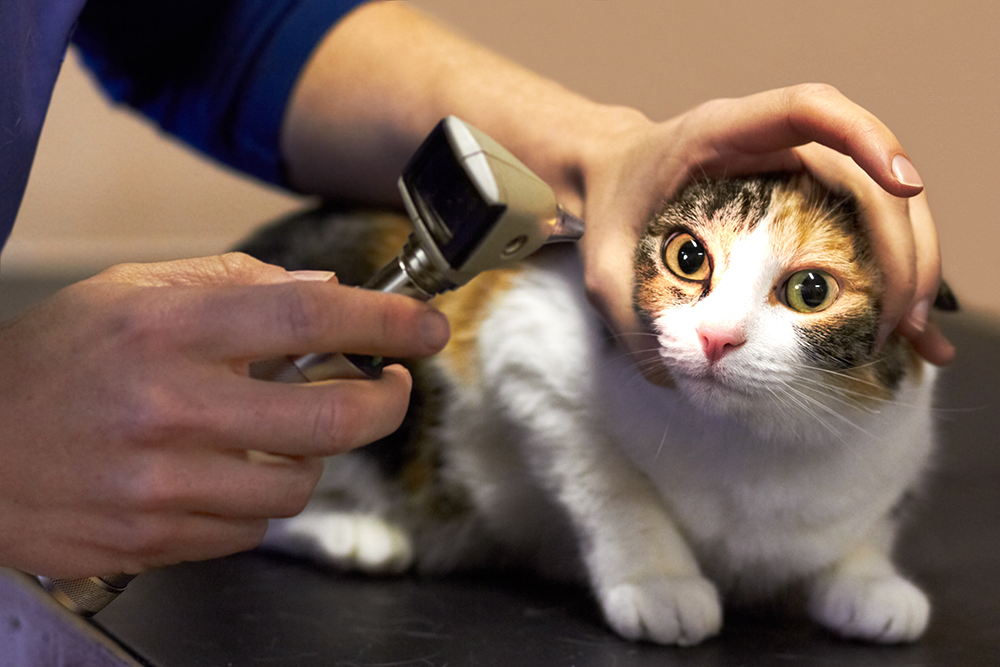
Prevention and Regular Care
Ongoing care and vigilance are paramount in preventing and managing eye issues in pets. Here are some strategies to help you keep your pet’s eyes healthy:
- Monitor Your Pet’s Behavior: Changes in behavior, such as reluctance to play or navigate familiar spaces, can indicate vision problems.
- Maintain a Clean Environment: Reducing exposure to irritants and allergens can prevent many eye issues.
- Regular Check-Ups: Routine veterinary visits are essential for early detection and prevention of eye problems.
Emergency Situations:
Eye emergencies can arise suddenly, often requiring immediate veterinary attention. Examples include sudden blindness, a visible foreign object in the eye, or severe trauma. In such cases, quick action can prevent permanent damage.
Recognizing, treating, and preventing eye issues are integral to ensuring your pet’s overall health and well-being. Regular check-ups can catch problems before they significantly impact your pet’s quality of life. If you have concerns about your pet’s eyes, it is crucial to seek veterinary advice promptly.
Schedule an appointment at Emerald Animal Hospital for a comprehensive eye examination and ensure your pet’s vision stays as healthy as possible.
Visit our Contact page to reach out today.
Your pet’s vision is precious—let’s protect it together.



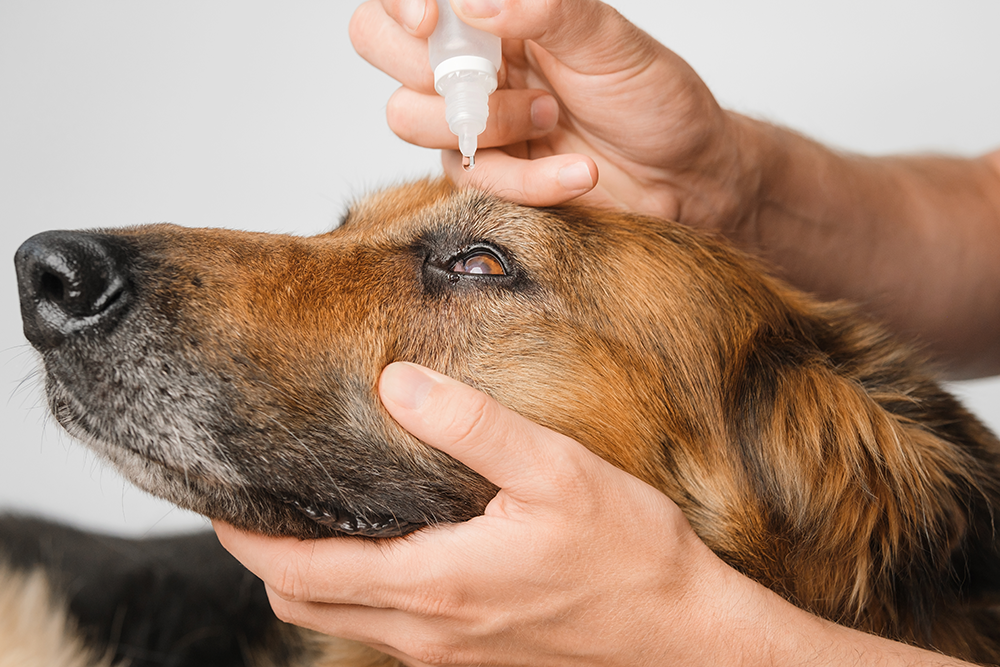
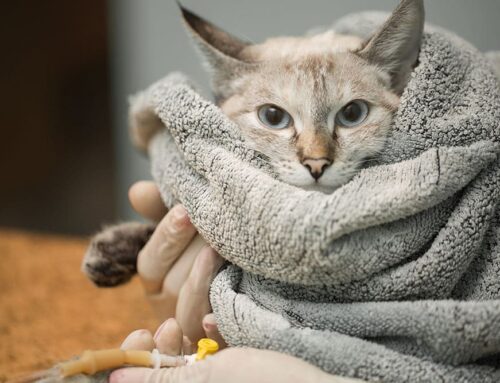
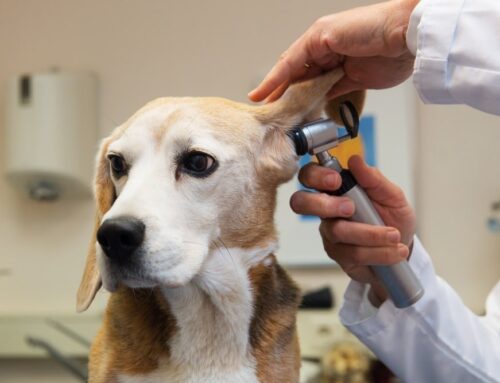
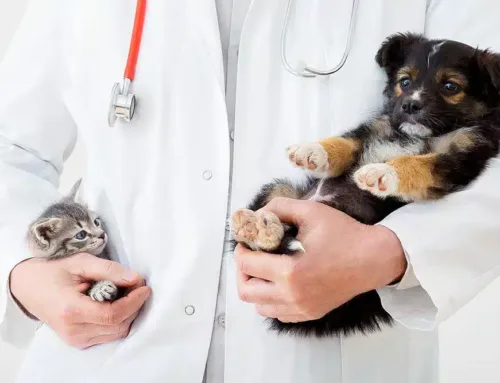


Leave A Comment